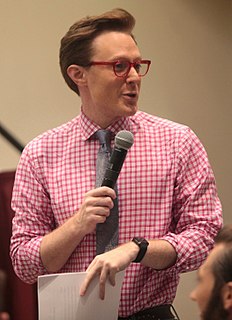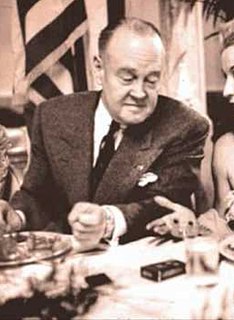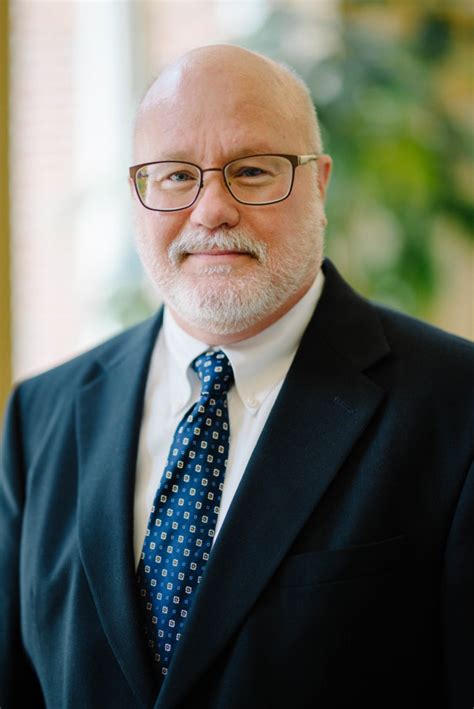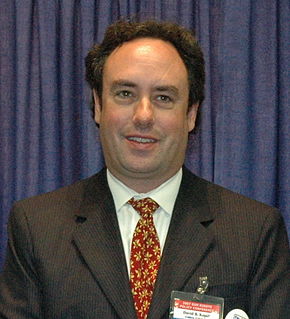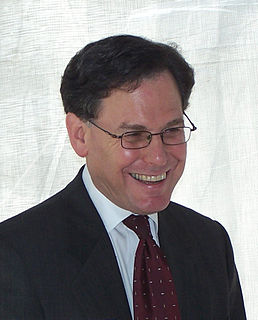Top 1116 Constitutional Amendments Quotes & Sayings - Page 19
Explore popular Constitutional Amendments quotes.
Last updated on November 16, 2024.
Obviously, Donald Trump won't be impeached or removed so long as the Republicans hold even one House of Congress. And even should they lose both in November of 2018, launching an impeachment - as the Republicans discovered with Bill Clinton - is very dangerous to the impeaching party. Unless you have a highly credible set of extremely damning facts, you turn a constitutional crisis into a political crisis. You rally potential supporters of the impeached president to him. You make his base bigger. So I imagine that he is likely to serve out the full term.
If it be asked what is to restrain the House of Representatives from making legal discriminations in favor of themselves and a particular class of the society? I answer, the genius of the whole system, the nature of just and constitutional laws, and above all the vigilant and manly spirit which actuates the people of America, a spirit which nourishes freedom, and in return is nourished by it. If this spirit shall ever be so far debased as to tolerate a law not obligatory on the Legislature as well as on the people, the people will be prepared to tolerate anything but liberty.
I don't think that there's substantiated evidence that shows that voter fraud is such a rampant problem that we have to put in place measures that people have to pass in order to exercise that constitutional free right. Voting should be -- and is required to be -- a right that is unencumbered. That does not have tests that people must pass.... Anything put in place to restrict that right, or to make it more difficult for people to exercise it, should be outlawed, and should not be allowed.
Are we going to continue to yield personal liberties and community autonomy to the steady inexplicable centralization all political power or restore the Republic to Constitutional direction, regain our personal liberties and reassume the individual state's primary responsibility and authority in the conduct of local affairs? Are we going to permit a continuing decline in public and private morality or re-establish high ethical standards as the means of regaining a diminishing faith in the integrity of our public and private institutions?
Nearly everyone who is unemployed votes "Democrat." Nearly every immigrant, at least in the first generation, votes "Democrat." Nearly every non-white American votes "Democrat." The GOP know that so intellectually and financially bankrupt an administration should never have been re-elected - indeed, given the scale of electoral fraud practiced by the "Democrats," he may not actually have been re-elected (always supposing that he had the constitutional right to hold the office of president in the first place).
I think basic disease care access and basic access to health care is a human right. If we need a constitutional amendment to put it in the Bill of Rights, then that's what we ought to do. Nobody with a conscience would leave the victim of a shark attack to bleed while we figure out whether or not they could pay for care. That tells us that at some level, health care access is a basic human right. Our system should be aligned so that our policies match our morality. Then within that system where everybody has access, we need to incentivize prevention, both for the patient and the provider.
The honest and serious student of American history will recall that our Founding Fathers managed to write both the Declaration of Independence and the Constitution without using the term 'democracy' even once. No part of any of the existing state Constitutions contains any reference to the word. [The men] who were most influential in the institution and formulation of our government refer to 'democracy' only to distinguish it sharply from the republican form of our American Constitutional system.
In its proper constitutional sense, the term [militia] means all the able-bodied people who can be trained and disciplined to act in the community’s defence when it’s attacked. Since it encompasses every able-bodied person, it does not refer to those—such as the police, the military, or even the National Guard—who formally compose the official defence forces of the nation. Every citizen able and willing to act in an emergency becomes a potential defender against attacks aimed at the general population.
I believe that prayer in public schools should be voluntary. It is difficult for me to see how religious exercises can be a requirement in public schools, given our Constitutional requirement of separation of church and state. I feel that the highly desirable goal of religious education must be principally the responsibility of church and home. I do not believe that public education should show any hostility toward religion, and neither should it inhibit voluntary participation, if it does not interfere with the educational process.
I strongly object to the fact that so many newspapers have given the American public and the world the impression that I have only two alternatives in taking this stand: either I go to jail or go to the Army. There is another alternative and that alternative is justice. If justice prevails, if my Constitutional rights are upheld, I will be forced to go neither to the Army nor jail. In the end I am confident that justice will come my way for the truth must eventually prevail.
Empathy - that is, caring about people and acting responsibly on that care, not just for yourself, but for others - this is something that Barack Obama understands very well. He was a professor of constitutional law at the University of Chicago for ten years. As an expert on the Constitution and on our family values, he understands very well that the country is fundamentally about caring for one another. The day after his speech, he was interviewed on CNN, and Anderson Cooper asked him what patriotism was. He said patriotism begins with caring for one another.
I define the terms "founding fathers" and "founders" broadly to include an entire generation or two of Americans from many walks of life who, in the last half of the 18th century and early 19th century, articulated the rights of colonists, secured independence from Great Britain, and established new constitutional republics at both the national and state levels. This definition includes a cast of thousands who played their patriotic part at the local, state, and/or national levels. Among them were citizen soldiers, elected representatives, polemicists, and patriot preachers.
Antigun advocates have always faced an uphill battle in this country. Americans have, to begin with, a constitutional right to gun ownership. Today, half of American households exercise this right, owning a total of about 250 million guns; and over 99 percent of those households do so in a responsible manner. To fight for major restrictions on an item that plays such a valued part in the lives of so many people looks like a nearly impossible task. So if you're really committed to the effort, and you want to win, what do you do? Simple: You lie.
I believe in a wall between church and state so high that no one can climb over it. When religion controls government, political liberty dies; and when government controls religion, religious liberty perishes. Every American has the constitutional right not to be taxed or have his tax money expended for the establishment of religion. For too long the issue of government aid to church related organizations has been a divisive force in our society and in the Congress. It has erected communication barriers among our religions and fostered intolerance.
History of America, Part I (1776-1966): Declaration of Independence, Constitutional Convention, Louisiana Purchase, Civil War, Reconstruction, World War I, Great Depression, New Deal, World War II, TV, Cold war, civil-rights movement, Vietnam. History of America, Part II (1967-present): the Super Bowl era. The Super Bowl has become Main Street’s Mardi Gras.
It is the duty of all Nations to acknowledge the providence of Almighty God,. to obey his will, to be grateful for his benefits , and humbly to implore his protection and favor... beseech Him to pardon our national and other transgressions; to enable us all, whether in public or private stations, to perform our several and relative duties properly and punctually to render our National Government a blessing to all the people by constantly being a Government of wise, just, and constitutional laws, discreetly and faithfully executed and obeyed
There may have been somewhere, as a few eighteenth-century philosophers dreamed, a group of peaceful men who got together one evening after work and drew up a Social Contract to form the state. But nobody has been able to find an actual record of it. Practically all the governments whose origins are historically established were the result of conquest-of one tribe by another, one city by another, one people by another. Of course there have been constitutional conventions, but they merely changed the working rules of governments already in being.
Particularly when the war power is invoked to do things to the liberties of people, or to their property or economy that only indirectly affect conduct of the war and do not relate to the engagement of the war itself, the constitutional basis should be scrutinized with care. ... I would not be willing to hold that war powers may be indefinitely prolonged merely by keeping legally alive a state of war that had in fact ended. I cannot accept the argument that war powers last as long as the effects and consequences of war for if so they are permanent -- as permanent as the war debts.
We do not force things on people. That's not how we want things to eventuate. That's not how we want things to happen. We have what we consider to be, anyway, a respect for our form of government, a constitutional republic. We believe in it. We want legitimate mandates. We win an election, we want it to be because the genuine majority of people who share our beliefs. We don't think we accomplish anything by forcing something on people. But that's not the way the left looks at this at all. They can only get what they want by forcing it on people.
You might say that, if citizens are acting for the right reasons in a constitutional regime, then regardless of their comprehensive doctrines they want every other citizen to have justice. So you might say they're all working together to do one thing, namely to make sure every citizen has justice. Now that's not the only interest they all have, but it's the single thing they're all trying to do. In my language, they've striving toward one single end, the end of justice for all citizens.
Western civilization has been at war with tribalism for 3,000 years. And that war was brought to the New World by the English colonists. A very early point in American law Chief Justice John Marshall is asked to decide the status of Indian tribes. And what he does. He calls them savages who lack the same rights as the white people who came over here, the Europeans, and colonized their land under this, what many Americans might regard as an obscure legal doctrine called the Doctrine of Discovery. But it is still the most important doctrine in American constitutional law.
After Darwin, God's role changes from being the designer of all creatures great and small to being the designer of the laws of nature, from which natural selection can unfold, to being perhaps just the chooser of the laws. By the time God's role has been so diminished, he becomes a bit like a constitutional monarch, presiding ceremonially but not having any more work to do. That's a place for God if it makes people comfortable to keep God as the presider over the universe. I suppose that is satisfying for many.
I am not sure that I know enough about the pre-history of 9/11 to agree or disagree. But I did think at the time that the [George W.] Bush administration took a number of cues from the Israeli government, not only by drawing on and intensifying anti-Arab racism, but by insisting that the attack on US government and financial buildings was an attack on "democracy" and by invoking "security at all costs" to wage war without a clear focus (why the Taliban?), and by suspending both constitutional rights and the regular protocol for congressional approval for declaring war.
It may be considered as an objection inherent in the principle, that as every appeal to the people would carry an implication of some defect in the government, frequent appeals would in great measure deprive the government of that veneration which time bestows on every thing, and without which perhaps the wisest and freest governments would not possess the requisite stability . . . a constitutional road to the decision of the people ought to be marked out and kept open, for certain great and extraordinary occasions
I fear that the impact of university censorship and university denial of due process will be to mis-educate a generation of students away from core values of civil liberties and constitutional safeguards. Students who have been led to believe by university administrators and faculty that censorship and denial of due process are acceptable norms will be more susceptible to accepting those norms in their post-university lives. That would be a tragedy for America.
Trump himself stands to benefit dramatically from the tax cuts. One of the things they're cutting is the alternative minimum tax. Last time we have tax returns for him was in 2005, where he paid about $31 million because of the alternative minimum tax. He won't have to pay that, if this tax bill goes through. So, not only is he reordering our constitutional democracy, he is personally enriching himself - which is not new, because, of course, he's done it ever since he swore an oath to become president of the United States.
We're talking about a militant terrorist situation, which I believe it isn't a widespread thing, but it is enough that we need to address, and we have been addressing it. My thoughts are these, first of all, Dearborn, Michigan, and Frankford, Texas are on American soil, and under constitutional law. Not Sharia law. And I don't know how that happened in the United States. It seems to me there is something fundamentally wrong with allowing a foreign system of law to even take hold in any municipality or government situation in our United States.
In any society, order is the first need of all. Liberty and justice may be established only after order is tolerably secure. But the libertarians give primacy to an abstract liberty. Conservatives, knowing that "liberty inheres in some sensible object," are aware that true freedom can be found only within the framework of a social order, such as the constitutional order of these United States. In exalting an absolute and indefinable "liberty" at the expense of order, the libertarians imperil the very freedoms they praise.
There are two kinds of comprehensive doctrines, religious and secular. Those of religious faith will say I give a veiled argument for secularism, and the latter will say I give a veiled argument for religion. I deny both. Each side presumes the basic ideas of constitutional democracy, so my suggestion is that we can make our political arguments in terms of public reason. Then we stand on common ground. That's how we can understand each other and cooperate.
The Electoral College is a project that calls on their judgment. If we don't like it, we can talk about how to eliminate it. I'm not quite convinced we should eliminate it completely. I think it's important to have a final check be somebody other than the Supreme Court. But given that it's there, we should take it seriously. And taking it seriously says they should exercise their judgment according to the moral values, the principles that are part of our constitutional tradition today. And those principles say equality.
Even if drugs are fully as destructive as they are usually claimed to be, it is morally wrong and demonstrably more destructive for government to deprive people of their unalienable, individual, civil, Constitutional, and human right to make an utter mess of their own lives. Since human beings are inclined to learn more from the mistakes they make, rather than from their triumphs, the right to fail, for individuals and groups alike, may be even more important than the right to succeed, and it must be fiercely protected at almost any cost.
I believe in the soul ... the small of a woman's back, the hanging curveball, high fiber, good scotch, that the novels of Susan Sontag are self-indulgent, overrated crap. I believe Lee Harvey Oswald acted alone. I believe there ought to be a constitutional amendment outlawing Astroturf and the designated hitter. I believe in the sweet spot, soft-core pornography, opening your presents Christmas morning rather than Christmas Eve, and I believe in long, slow, deep, soft, wet kisses that last three days.
Everybody complains about pork, but members of Congress keep spending because voters do not throw them out of office for doing so. The rotten system in Congress will change only when the American people change their beliefs about the proper role of government in our society. Too many members of Congress believe they can solve all economic problems, cure all social ills, and bring about worldwide peace and prosperity simply by creating new federal programs. We must reject unlimited government and reassert the constitutional rule of law if we hope to halt the spending orgy.
I prefer an income tax, but the truth is I am afraid of the discussion which will follow and the criticism which will ensue if there is an other division in the Supreme Court on the subject of the income tax. Nothing has injured the prestige of the Supreme Court more than that last decision, and I think that many of the most violent advocates of the income tax will be glad of the substitution in their hearts for the same reasons. I am going to push the Constitutional amendment, which will admit an income tax without questions, but I am afraid of it without such an amendment.
I call George W. Bush a radical because he is undertaking a fundamental transformation of our Constitutional system of government and of our longstanding policies that have been accepted for literally generations. He thinks to concentrate unaccountable power in the Executive. He thinks you alter the laws so that, as Commander in Chief, he can determine, under what he says are wartime conditions, what the laws are, which laws should be enforced, and declare by fiat what our policy should be, even abrogating longstanding international treaties.
I believe our nation is at a point where there are enough irreconcilable differences between those Americans who want to control other Americans and those Americans who want to be left alone that separation is the only peaceable alternative. Just as in a marriage where vows are broken, our rights guaranteed by the U.S. Constitution have been grossly violated by a government instituted to protect them. These constitutional violations have increased independent of whether there's been a Democrat-controlled Washington or a Republican-controlled Washington.


